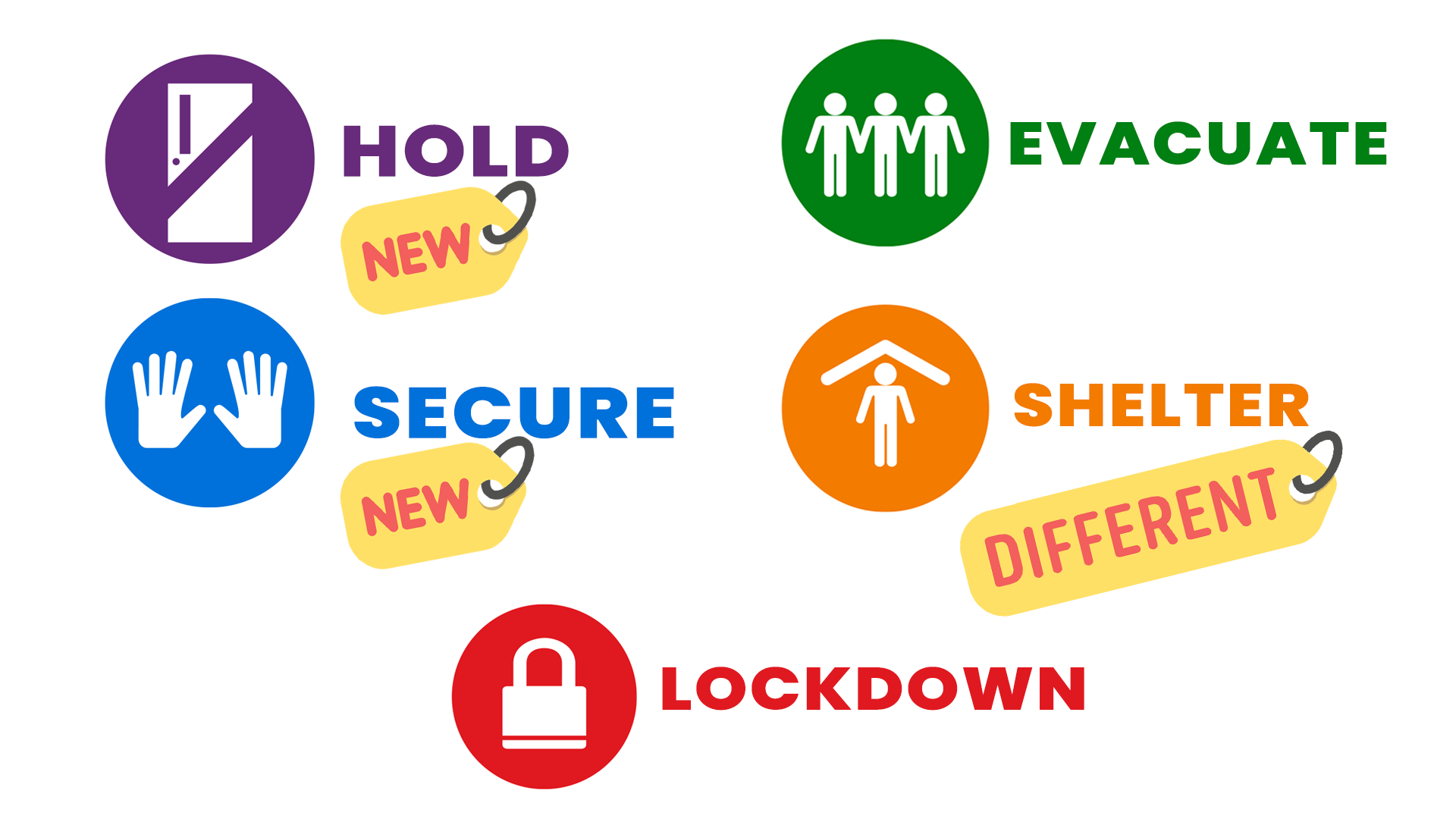Preparing for Emergencies—What’s New?

MCPS is now using an enhanced security protocol to effectively and efficiently respond to emergency and crisis situations that may impact students, families and staff. Here’s what you need to know:
The Standard Response Protocol (SRP) includes five directives: Hold, Secure, Lockdown, Evacuate and Shelter. This video explains more about SRP.
What’s New? Hold & Secure
- Previously, “Shelter” was used as a catch-all for various conditions (weather, medical emergency, police activity, etc.). That was a broad approach; now, the new language splits and clarifies those responses:
- Hold: To be used to keep hallways clear during instances, such as a medical emergency or a hazard in a hallway, while classroom activities continue normally.
- Secure: To be used during external threats, such as police activity near the school. Students and staff are brought inside the building and external doors are locked, while normal activities continue inside the school building.
- Shelter will now apply to only environmental hazards, such as extreme weather. Appropriate safety strategies will be used depending on the hazard.
What remains the same? Lockdown & Evacuate
- Lockdown – Locks, lights, out of sight.
- Used when there is an immediate threat inside or very near the building.
- Staff and students will be instructed to lock classroom doors, turn out the lights, stay quiet and out of sight, and not to open doors.
- Evacuate – Guide students and staff out of the building to an evacuation area.
- Used when it is safer outside of the school building than inside (e.g., fire, gas leak, unsafe structure).
- Follow evacuation routes.
All MCPS schools are required to complete a series of emergency drills by the end of October. Schools will also take time to review safety procedures, such as how families would be reunited after an emergency and how staff and students might respond in the unlikely event of a serious threat.
In the event of a lockdown, schools and/or Central Services will communicate with families every 20 minutes with updated information as it becomes available. This practice has already been in place and keeps families connected during serious incidents with information available at the time.
